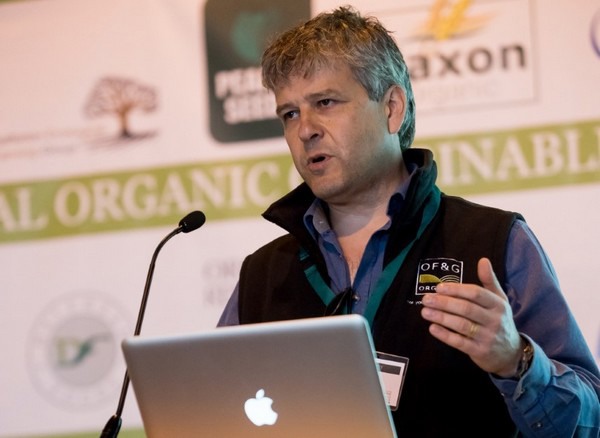OF&G (Organic Farmers & Growers) support many of the findings in the Environment, Food and Rural Affairs Committee’s damning new report ‘Environmental Land Management and the Agricultural Transition’ which highlights the government’s lack of strategic vision in the implementation of its ‘flagship’ policy.
As a leading UK organic certification body, OF&G has repeatedly petitioned for recognition of organic within the transitional policy framework. Acknowledgement of organic as a legally defined farming system with quantifiable evidence of multiple public goods, delivered within a robust and independent verification framework, would be environmentally and economically advantageous, adding value to the UK agricultural sector overall.

The EFRA Select Committee’s report is deeply critical in its summary which warns of the risk of farmers going out of business because of poorly managed, ‘haphazard’ changes. Roger Kerr, chief executive of OF&G, says this latest paper echoes many of OF&G’s ongoing concerns about Defra’s regressive approach, as direct payments are phased out and new schemes introduced.
“In light of the huge upheaval across the agricultural sector, our concerns are threefold,” says Mr Kerr. “Firstly, it’s shocking that the report indicates that some farmers may choose to pursue intensive farming as a more financially viable alternative to entering into ELM. Obviously, this would be a disaster as it is completely contrary to Defra’s declared intentions of delivering ‘public goods’ with improved biodiversity, water quality, better soil management and carbon sequestration.”
OF&G’s second concern centres on the lack of measurable objectives to assess ELM's success, despite the multi-billion-pound project already being underway. The chair of the EFRA Select Committee, Neil Parish MP has indicated there is a complete lack of clarity around the outcomes that are anticipated at the end of the seven-year transition period.
“We know that a poor uptake of ELM will have significant consequences for the environment,” continues Mr Kerr. “It is essential that Defra assess how this is likely to pan out through the publication of a thorough impact assessment, rather than crossing its fingers and hoping for the best. Organic farmers and growers are rigorously inspected and assessed on an annual basis, ensuring compliance to organic production methods and the simultaneous delivery of public goods that Defra says it is seeking to achieve.”
OF&G’s final concern relates to the blatant disregard for how the phasing out of direct payments will affect farmers’ livelihoods.
“Government seems determined to railroad its way through the roll out of ELM. There has been much talk of Defra’s commitment to co-design but when it comes to explicitly integrating organic within policy our calls have fallen on deaf ears.
“We want our farmers to thrive while also contributing to the environmental aims that are essential to the longevity and health of the sector and the planet. The serious points raised by this new report lead us to question, again, why Defra is not supporting organic farming with its verifiable, proven, quantifiable comprehensive environmental delivery?
“Organic is not the only production method that should be supported but given the value it delivers on so many economic and environmental levels, Defra’s myopic approach evidenced by the absence of any recognition of organic within ELM is quite frankly ludicrous.”
“If ELM seeks to deliver better outcomes for farmers and the environment, it seems to me that support for organic production is one very simple, straightforward and cost-effective means of ensuring delivery of this,” concludes Mr Kerr.
